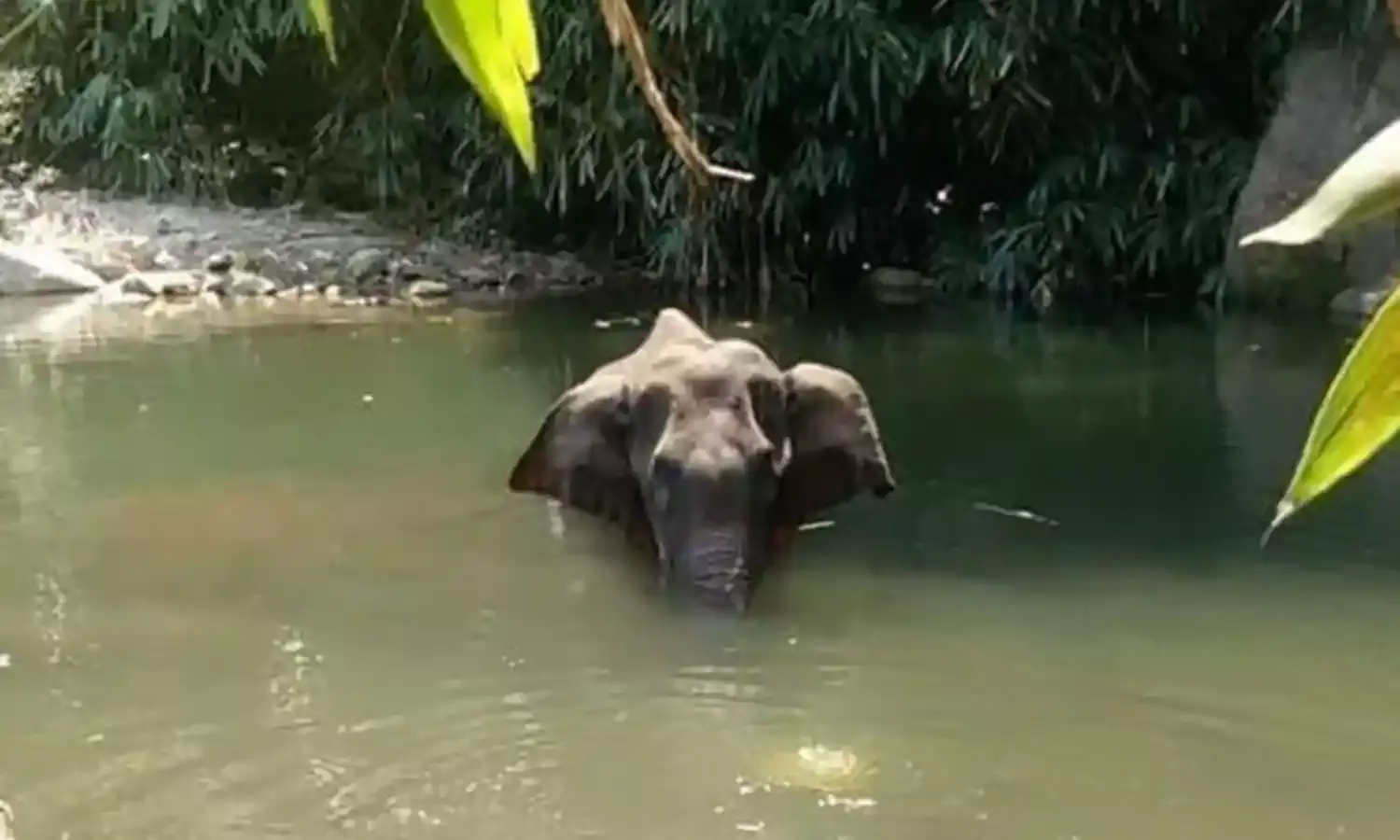The Death of a Pregnant Elephant and the Human Conscience
The Death of a Pregnant Elephant and the Human Conscience

One of the earliest stories I read as a child that I remember was about an elephant and its mahout. It recounted the tale of a domestic elephant everyone in the village fawned over, until it underwent a period of musth one fine day. In keeping with its overdriven hormones, the elephant turned violent and went on a rampage across the village. However an instinctual compassion for its human friends persisted subconsciously, and it tried to contain its aggression to cause minimum harm. But the people were no friends now. They hurled sticks, stones and screams at the giant. Eventually, they succeeded in putting him down. Permanently.
I’ve lost the book, but the story remains. That was the first I’d learnt of human cruelty in the face of animal innocence.
As if the year couldn’t get any worse, May 30 brought another severely horrible issue to light. Mohan Krishnan, a section forest officer based in Mannarkkad, wrote an emotional piece in Malayalam, affixed with some pictures on Facebook, conveying the killing of a wild elephant in Kerala. The demise was not a consequence of jungle war, but human depravity.
Reportedly, the giantess had left the nearby Silent Valley in search of food and chanced upon a damned pineapple stuffed with firecrackers. One bite and her mouth exploded, breaking her jaw. She roamed the neighbourhood for days in hellish pain, yet heavenly peace.
Perhaps that characteristic elephant wisdom prevailed, detecting the sense of an ending. So in a final journey, she lumbered towards the Velliyar River. And there she stood for 48 hours, hungry, pained, away from the world. But she wasn’t alone. Her dying moments were spent in companionship of the unborn calf in her stomach, due in another 20 months. That was all the motherhood she was allowed. They kept each other company till the waters took them in. Resigning to the murder that was a fate inevitable for their kind in this human-infested world, mother and baby died together.
The incident caused a furore on social media. Activists and environmentalists raged up a storm, calling for the Forest Secretary in Malappuram to step down. On this less-political, more- humanitarian issue, Bollywood too made its appearance. Some celebrities tweeted their anguish, some instagrammed heartrending cartoons, while Akshay Kumar partook in the outrage with a misdirected ‘All Lives Matter’ hashtag currently being used to rebut the ‘Black Lives Matter’ movement. Nevertheless, there was general agreement everywhere about nailing the perpetrators of the crime and bringing justice to the two lost lives. I signed a petition for it too.
But humans are as foolish as they are criminal. We have fabricated for ourselves a serious-sounding legal system bound by paperwork that hands out punishment as if it were prasada. When the wrongdoer is awarded their due, we sigh with contentment at the deliverance of justice. But what good is this false sense of justice that depends on a tit for tat scheme that every moral science textbook has taught us is wrong? More importantly, what good is this justice that will never ever be able to justify the sin of murdering another? And most importantly, what good is this one-time justice that doesn’t seem to be serving as a deterrent to other crimes of the same nature?
The death of this pregnant elephant is not an isolated event. It was reported that in April another elephant died under similar circumstances in Kerala, where using snares to protect farms from wild animals is common practice, despite it being a punishable offence under the Wildlife Protection Act. This, in God’s own country.
The rest of India is worse off. Since 2014, the Environment Ministry has been deeming animals like the rhesus monkey, nilgai, elephant, and wild boar “vermin” that humans have a license to kill to protect their crops. In 2016, a student in Chennai threw a 5-month old puppy down from the rooftop and made a video of it too. In 2018, 8 men gangraped a pregnant goat in Haryana.
Every time an innocent life or an entire species is materialised into leather bags or factories built on grazed forest land, human conscience dies a slow death. We give ourselves too much credit for being human, when all this while we’ve been living half lives. A million retributions couldn’t absolve our race for the crimes it has committed against every next tree and animal that we share space with. Heck, we’ve been breathing and thriving and developing at the expense of mute lives for centuries now.
Look around. The world we have so carefully carved out of nature rests upon a graveyard.



